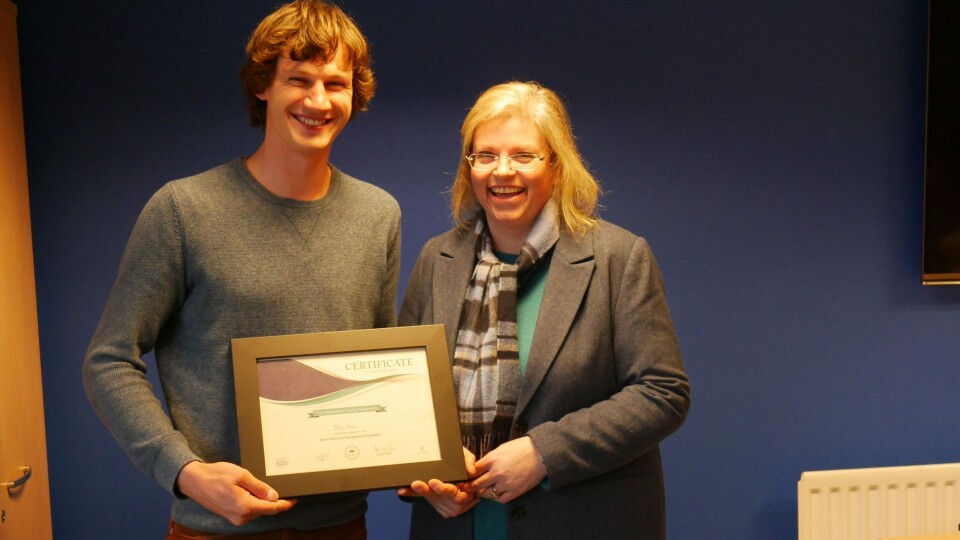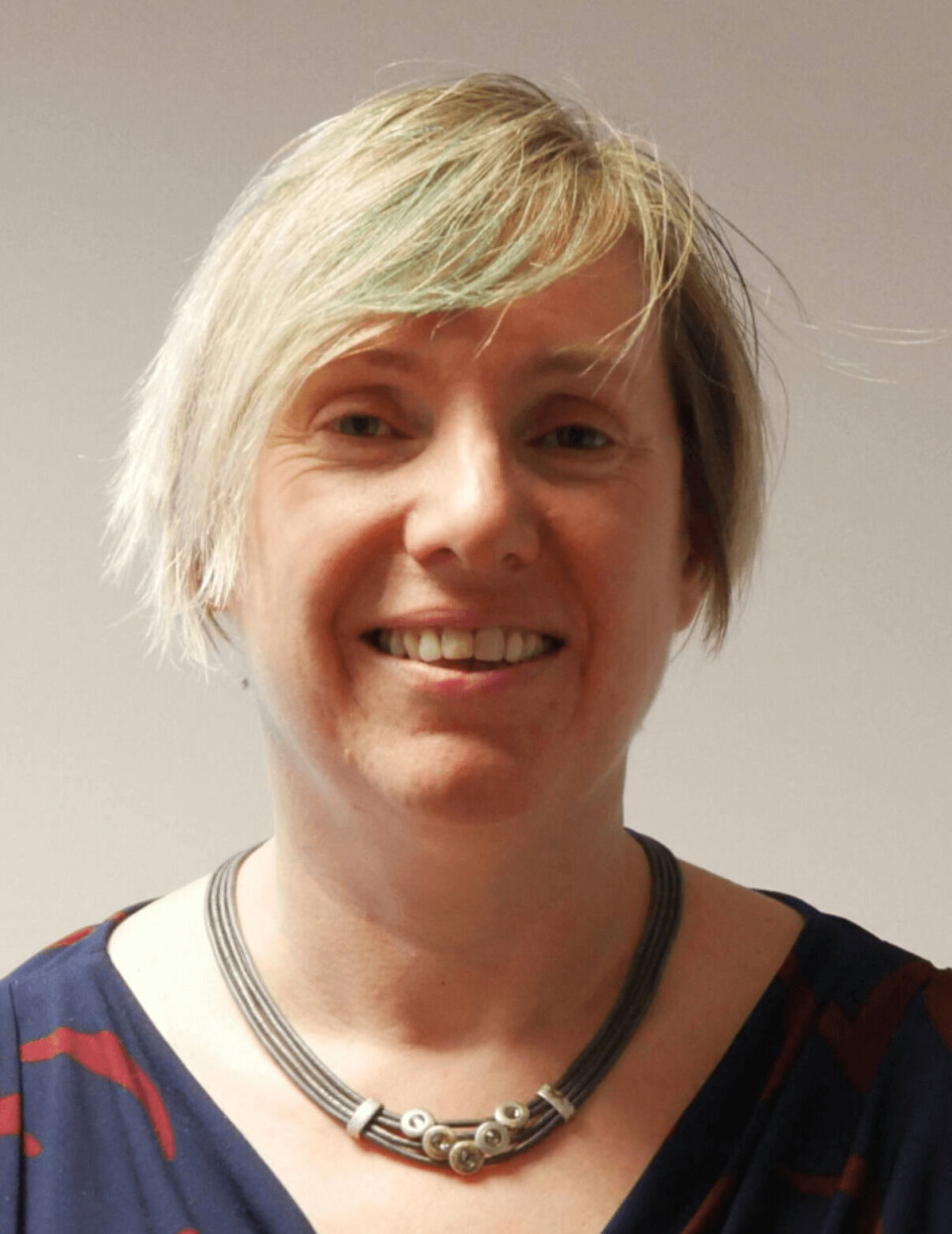
Tomorrow's leaders look ahead with confidence
A group of potential Scottish aquaculture leaders of the future have finished a series of training days that has given them with a variety of new skills and attributes, not least the confidence in their ability to manage staff.
The Junior Executive Development Programme, which provided a one-day workshop every couple of months over an 18-month period, was funded by the Scottish Aquaculture Innovation Centre (SAIC) and delivered by training company Skillfluence.
The people taking part included three farm managers and a cleanerfish technician from Mowi, two employees from feed producer BioMar and one from Scottish Sea Farms.
Short videos
At the final day workshop at SAIC’s office at Stirling Innovation Park last week, many of the young people who had taken part each showed a short video they had made and explained what they had gained from the programme. They were then presented with certifcates by the Scottish Salmon Producers’ Organision’s sustainability director, Anne Anderson.
One aspect of the programme particularly appreciated by several of the participants was a technique for understanding personality types as a way of becoming a better manager.

Personality assessment
“They loved that, and it was a bit of a theme we used throughout the rest of the course as well,” said Skillfluence director Alison Gray.
“We used Myers-Briggs type indicator, which is a self-assessment of your personality type. To be honest it’s not something that’s rocket science or that you can use to be absolutely certain of your type of personality but what it allows you to do is understand that different people think differently, and actually that’s quite a big lesson for people. You realise that maybe the best way of getting someone to do something isn’t just telling them the facts but actually getting their buy-in.”
Gray said the biggest change she’d seen in the trainees over the 18 months of the programme was their increasing confidence.
Confidence a big issue
“People started out not really sure what their role was going to be like, how they would fit in, how they would lead coming into a new job. A lot of them are young, they’ve just graduated, and so confidence is a big issue for them in terms of feeling that they do know what they’re doing, and they are good at what they do.
“They were able to share with each other a lot of different scenarios and get a bit of reassurance from each other. Part of that came from the content of the training but a lot of it also came from the environment of the training – it’s quite a safe place for people to discuss hot topics and gain confidence that way.”
Gray said the programme participants also got three one-to-one coaching sessions, one each at the beginning, middle and end of the course.
Useful tool
“That was quite a useful tool for people. When they were starting out it was an opportunity for them on a one-to-one basis, and also by Skype or phone call, to talk about where individually they felt they were at. It was a bit of confidence building.”
SAIC chief executive Heather Jones said the idea for the programme had been “stolen” from the civil service and had been deliberately set up to have people from different companies and sectors and backgrounds.
She added that although SAIC had funded the programme, a contribution would have to be made from the companies whose employees were receiving training if the programme was to be repeated.
The 10 people who took part in the training are:
- Kendal Hunter, manager at Mowi’s Lochalsh salmon farm and a former Mowi Graduate Management Programme trainee.
- Kurk Jones, manager at Mowi’s Portnalong salmon farm on Skye, who has worked for Mowi since leaving school in Portree in 2011 and has worked his way up through the ranks.
- Ben Weiss, manager at Mowi’s North Shore sites at Loch Erisort, Isle of Lewis, which have a combined biomass of 4,000 tonnes. The young German gained a Master’s in Sustainable Aquaculture at Stirling University’s Institute of Aquaculture and spent a year as a fish health specialist with Scottish Sea Farms in Orkney before joining Mowi’s Graduate Management Programme.
- Connie Pattillo, who moved to the UK from Australia, is now a regional cleanerfish technician for Mowi after gaining a BSc Honours in Marine Biology at Stirling.
- Amy McGoohan, who has a degree in Marine Biology from Edinburgh’s Heriot Watt University, manages a team of four quality monitors in her role as quality assurance supervisor at Scottish Sea Farms’ South Shian processing plant.
- Dan Mulqueen, who has a degree in Marine Science from the Scottish Association for Marine Science, Oban, was a graduate intern at BioMar and now has a permanent technical advisor role with the feed company.
- Ivana Russo, who has a Master’s in Environmental Protection and Management from Edinburgh University, is now a business support advisor at BioMar after 18 months as a graduate intern.
- Sarah Evans, who has degrees in Marine Biology and Aquatic Food Security from Stirling, is the aquaculture and procurement technologist for the Scottish Shellfish Marketing Group.
- Evelyn Chan, who is studying for her second degree at Stirling, as well as an accountancy qualification, is now finance officer for SAIC as well as being dedicated faculty officer for Stirling’s Faculty of Natural Sciences (Aquaculture).
- Sam Houston, who has a PhD in fish nutrition from Stirling, now works for SAIC as its knowledge exchange officer.
The last three were unable to make it to the presentation due to other commitments.























































